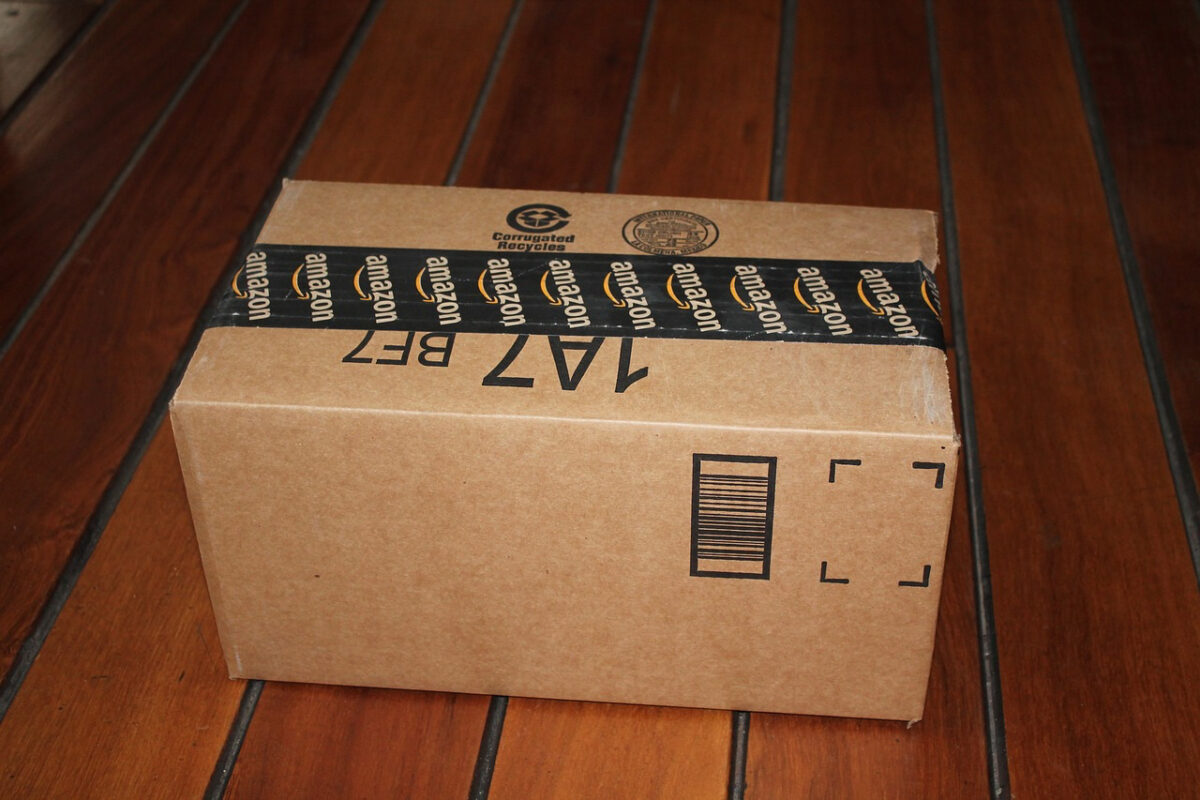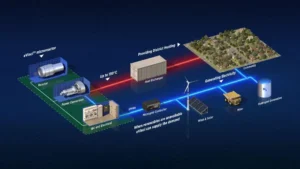In the beginning of this year, Amazon started applying local sales tax to municipalities in Alaska. According to the City of Nome, the online company first contacted them in late 2018, and now, packages sold by Amazon that are shipped to a Nome zip code include sales tax. But that does not include goods from a third-party retailer.
Last year, the U.S. Supreme Court decided that states like South Dakota have the right to collect sales tax from Amazon and other online marketplaces or retailers, even if they don’t have a physical store located in the area. However, Alaska doesn’t have a statewide sales tax, so it is up to each municipality to determine their own sales tax rate within the state.
Nome City Clerk Bryant Hammond confirms that Amazon has purchased a sales tax license from the City, in effect for the 2019 calendar year. As such, the Nome Code of Ordinances states the company can collect 5% sales tax on all goods being delivered to a Nome zip code throughout the year, except during the months when the 7% seasonal sales tax is in effect.
Nome resident Jessica Farley and her husband Howard Farley, Jr., a.k.a. “Chugie,” say the city should better explain how this tax will affect local residents.
Jessica: “I actually think it’s great that the City of Nome is able to collect this revenue… However, I think it might have been underestimated in the budgeting process, what a significant boon it could be to the city’s tax base.”
Chugie: “I think the citizens need to at least know where that money is going to go into. The city just says ‘slush fund,’ which has no real definition, what they’re going to use it for…”
Hammond says that the Amazon sales tax revenue does not go to a “slush fund,” but rather, to the City of Nome’s general fund, although Hammond couldn’t provide exact dollar amounts. Money from e-commerce can be a tricky thing to keep track of.
Individual customers who make purchases online through the company have the ability, however, to track their own personal expenses and contributions, which is what Jessica Farley did.
“Go to your (Amazon) account, and then, you will just go to your orders. On the top right corner, it will say, ‘export to .CSV,’ and when you do (that), you’ll get a year-to-date report on everything that you’ve spent and where it’s gone and what taxes were collected. So, I did that, and I was able to filter out the exact dollar amount that has been sent to the City of Nome by Amazon. I think it was around $780 so far this year.”
Farley estimates that if everyone within city limits of Nome spent half as much as she does on Amazon purchases, then that would be more than $1.3 million dollars going to the City of Nome for the year. However, she points out that there is no way for her to know for sure how her spending compares to other Nome residents.
According to Hammond, the City does have information about the amount of money Amazon has collected thus far in sales tax on packages shipped to Nome. But the city clerk says that information is proprietary by city code, and he cannot divulge it.
Multiple attempts by KNOM to reach Amazon’s public relations department have gone unanswered.
According to the executive director of the Alaska Municipal League, Nils Andreassen, the AML is working to create a separate group that can help Alaska communities collect online sales tax as one collective body. He says their discussions with Amazon have focused on smoothing out tax details that aren’t working for various municipalities.
“There are some growing pains. One, there’s a hundred different tax codes we are trying to collect, and many of them are not accessible. So they’re trying to work through that and trying to work through the different reporting requirements and periods. There’s additional confusion in implementation, because the sales tax boundaries aren’t always consistent with zip code, and that’s something we will address through our centralized administration.”
In a previous article from KUCB Radio, Andreassen said in order to set this up, all 100 existing state tax codes need to be compiled, definitions across municipalities need to be streamlined, and an administrator identified to complete a sales tax boundary map.
It is unclear how or if Amazon differentiates non-profits and other entities whose purchases are exempt from sales tax under Nome’s City Code of Ordinances.
Jessica Farley believes the city should provide a way for people to receive refunds on purchases they feel were improperly taxed.
“The City of Nome shares (zip code) 99762 with Little Diomede and Golovin, and so, we were hoping that there would be some sort of method for people who are exempt from those taxes, or residents of Diomede or Golovin, or have active building permits and they don’t need to pay taxes on certain items purchased (such as construction items) — that there would be some way to get a refund from the city of Nome.”
Farley also points out that the state of Washington has a law on the books to accommodate this sort of sales tax refund requests from Amazon and other online retailers. Hammond says the city does not currently have a process in place to address residents’ refunds.
According to Andreassen, Nome is one of several municipalities working with him and AML to form the statewide commission, which could help address incorrect charges and potential refunds from online retailers.
Andreassen hopes the group will be up and running by November of this year.
Image at top: photo is in public domain. Source: Pixabay, 2019.





